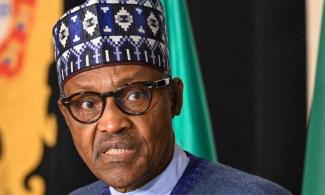
The Minister of Interior, Rauf Aregbesola made this known at the 3rd Ministerial Conference on Counter-Terrorism Financing, with the theme, “No Money for Terror”, which took place in India, Vanguard reports. According to the minister, the financiers have links to at least 10 countries of the world.
The Nigerian Government said it has identified 100 high-risk financiers of Boko Haram, in its fight against the menace.
The Minister of Interior, Rauf Aregbesola made this known at the 3rd Ministerial Conference on Counter-Terrorism Financing, with the theme, “No Money for Terror”, which took place in India, Vanguard reports. According to the minister, the financiers have links to at least 10 countries of the world.
The minister, who was represented by his aide, Abdulmalik Suleiman, on Sunday, said: “The Nigerian Financial Intelligence Unit, NFIU, has played a significant role, in supporting all our intelligence, security, and military services.
“The unique ability of the NFIU to work with counterparts in the region and across the world, particularly through the framework of the Egmont Group of FIUs, is a key asset for our country.
“In particular, I would like to take a few minutes to discuss some recent results achieved with the support of our partners. In 2019, the NFIU commenced an in-depth analysis of the financing of the Boko Haram group.
“This analysis, which took almost 18 months to complete, resulted in the identification of almost 100 high-risk financiers and identified links to 10 different countries.
“The NFIU was able to build a thorough picture of the transnational sources of the group’s finance, using intelligence from several countries, including our immediate neighbours, Cameroon, Chad, Niger, and Togo.
“Ultimately, the results of the analysis resulted in the arrest of 48 of the financiers and the ongoing prosecution of a number of them.”
Presidential spokesman, Garba Shehu, in March 2021 said the Nigerian Government arrested operators of 400 Bureaux De Change for allegedly funding Boko Haram insurgency in the country, saying the suspects were transferring money to the terrorists.
Nigerians have since been asking the President Muhammadu Buhari-led government to disclose the identities of the suspects, a request the government has repeatedly ignored.
Shehu’s colleague, Femi Adesina said the Buhari-led government is not interested in naming and shaming the financiers of terrorism but in their prosecution.
Attorney-General of the Federation and Minister of Justice, Abubakar Malami (SAN), had also said the government would not name and shame the suspected financiers of terrorism before their trial.
“Naming and shaming of suspects is not embarked upon as a policy by the federal government out of sheer respect the constitutional rights of Nigerians relating to presumption of innocence,” Malami had said in a statement.
“It is a product of constitutionalism and the law. It is rooted in the law and the names of the suspects will accordingly be made public at the point of judicial arraignment while the. Trials are judicial processes and not about media sensations.
"Naming and shaming in the Nigerian context must be rooted in constitutionalism. We must strike a balance between constitutional presumption of innocence and evidential proof of reasonable ground for suspicion in making disclosures associated with terrorism funding and financing.
“Where reasonable grounds are established, suspects must be naturally taken to court at which point their identity must be disclosed and the naming becomes apparent. Shaming, on the other hand, is the product of conviction at which point the public is equally judicially put on notice. In essence, naming and shaming within the context of Nigerian law are judicial functions which commence with arraignment and terminate with convictions.”
Though the Minister claimed 285 suspects had been charged before the Federal High Court, sources told SaharaReporters that only over 40 were being prosecuted by the government before the court based “on prima facie cases of terrorism.”